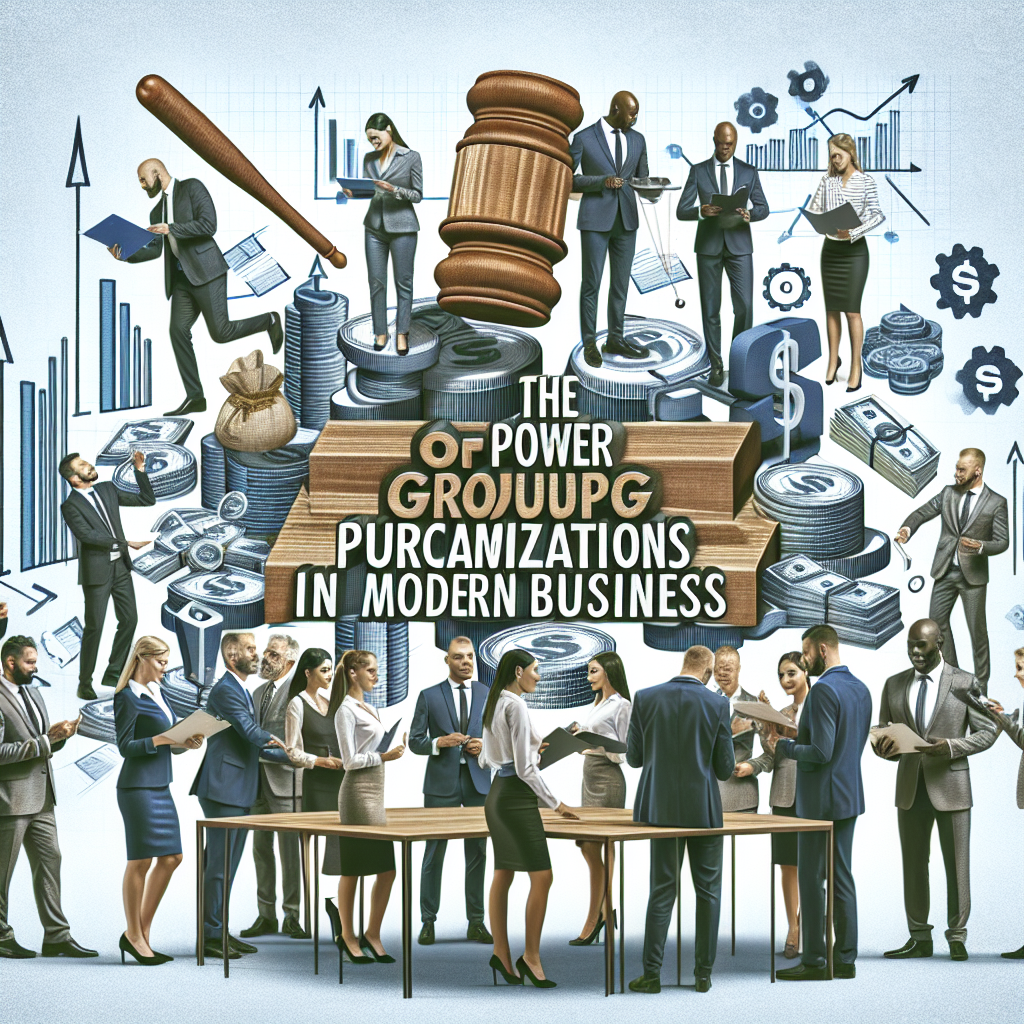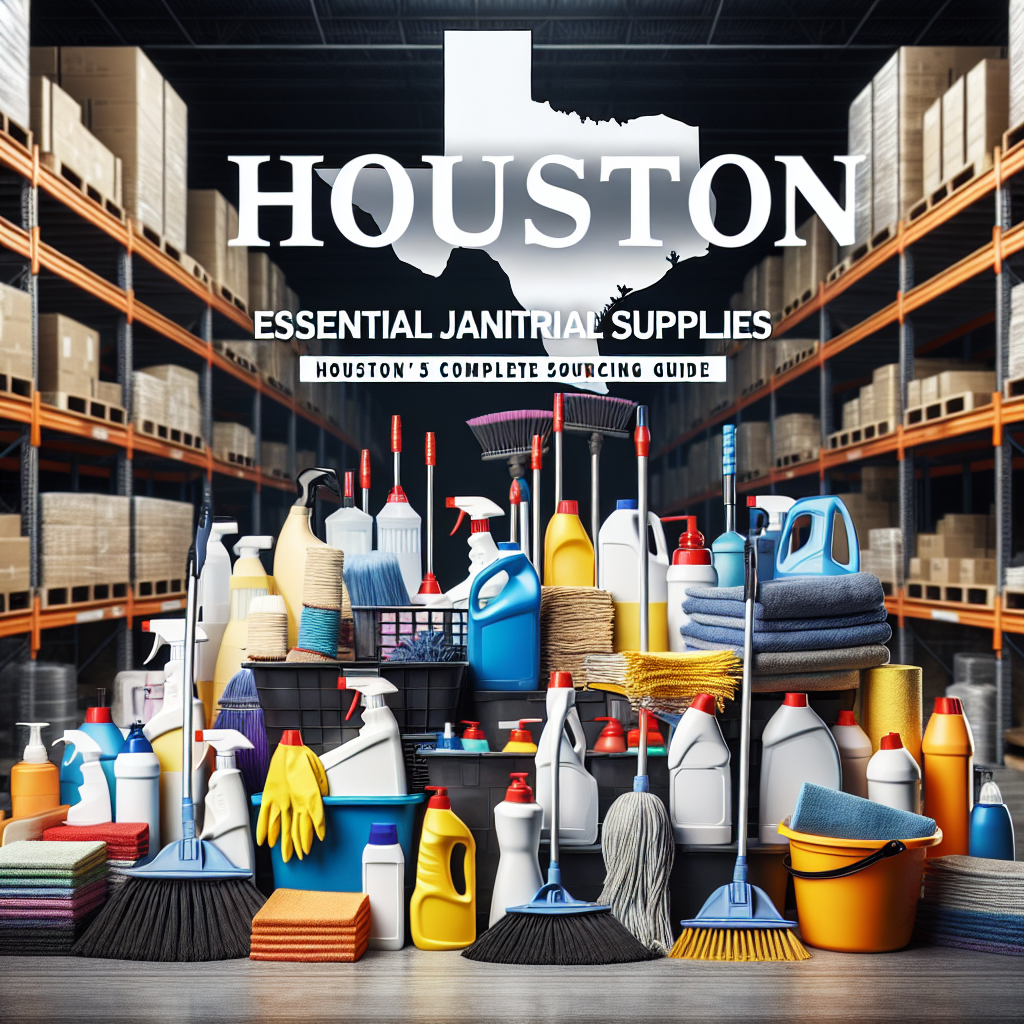Introduction
A socially conscious supply chain integrates ethical and sustainable practices throughout each stage of the supply process. This approach goes beyond mere profit, emphasizing the importance of social, environmental, and economic considerations.
Integrating ethical considerations is crucial. It enhances brand reputation, fosters customer loyalty, and contributes to a more sustainable future. Embracing these values is not just a trend but a necessity for modern businesses.
Hubzone Depot embodies this mission. As a certified HUBZone small business and Women’s Business Enterprise, Hubzone Depot prioritizes ethical sourcing and sustainability. Their commitment includes:
- Transparent reporting
- Best-in-class service integrity
- Significant cost reduction strategies
By embedding these principles, Hubzone Depot not only supports their community but also sets a benchmark for socially responsible business practices.
The Significance of Socially Conscious Supply Chains
Creating a socially conscious supply chain isn’t just good ethics; it’s smart business. Companies that prioritize ethical practices often see a positive impact on their brand reputation. Customers today are more informed and selective, favoring brands that align with their values. According to recent studies, over 70% of consumers prefer buying from companies that demonstrate corporate social responsibility.
Employee morale and productivity also benefit significantly from socially conscious initiatives. When employees know their company is committed to ethical practices, they feel more engaged and motivated. This sense of pride can lead to higher retention rates and improved overall performance.
Consider the customer loyalty aspect as well. Brands with strong ethical foundations often enjoy greater customer loyalty, leading to repeat business and positive word-of-mouth referrals. It’s a win-win situation: doing good translates to doing well.
For insights on how group purchasing organizations (GPOs) can optimize your supply chain while maintaining ethical standards, check out this article.
Explore more about building a socially conscious supply chain on the Hubzone Depot Blog.
Key Steps to Building a Socially Conscious Supply Chain
Importance of Understanding the Supply Chain Landscape
Getting a solid grasp on your supply chain landscape lays the foundation for building ethical practices. This involves mapping out every step of your supply chain, from raw material sourcing to final product delivery. Knowing where each element comes from and how it gets to you can reveal potential areas for improvement.
To dive deep into this understanding, consider:
- Supply Chain Research: Conducting thorough market analysis can help pinpoint inefficiencies and opportunities for ethical upgrades.
- Supplier Audits: Regular audits ensure that suppliers adhere to your ethical standards.
Identifying Ethical Suppliers and Practices
Selecting suppliers with strong ethical practices is crucial. Look for those who prioritize fair labor, sustainable sourcing, and community engagement. Use certifications such as Fair Trade or ISO 14001 as benchmarks.
Some steps include:
- Researching Supplier Backgrounds: Gather detailed information on supplier practices.
- Vendor Management: Maintain a robust vendor management system to track compliance and performance.
By prioritizing these steps, organizations can pave the way for a socially conscious supply chain that aligns with their values and business goals.
1. Conduct Thorough Research in Your Supply Chain
Understanding the supply chain landscape is crucial. You need to dive deep into every segment of your supply chain, from raw material suppliers to the final point of product delivery. This comprehensive analysis helps you identify potential risks and opportunities associated with each step.
Key Actions for Effective Supply Chain Research:
- Market Analysis: Start by conducting a thorough market analysis to understand the dynamics and trends within your industry. This includes evaluating competitors, understanding consumer demands, and identifying potential disruptions.
- Ethical Sourcing: Identifying ethical suppliers is a core component of building a socially conscious supply chain. Look for suppliers who adhere to fair labor practices, environmental standards, and have transparent operations.
By focusing on these areas, you ensure that your supply chain not only meets operational requirements but also aligns with your company’s ethical values.
Engaging in detailed research sets a solid foundation for the next steps in creating a socially responsible supply chain.
2. Set Realistic Goals for Sustainability Efforts
Setting realistic sustainability goals is crucial for any organization looking to build a socially conscious supply chain. The use of SMART goals—Specific, Measurable, Achievable, Relevant, and Time-bound—ensures that your objectives are clear and attainable.
Importance of SMART Goals in Sustainability Efforts
Implementing SMART goals helps in:
- Clarifying Objectives: Specific goals provide a clear direction.
- Tracking Progress: Measurable goals make it easier to monitor improvements.
- Ensuring Feasibility: Achievable goals prevent setting expectations too high.
- Aligning with Mission: Relevant goals ensure alignment with your organization’s mission and values.
- Meeting Deadlines: Time-bound goals help maintain momentum and urgency.
Examples of Realistic Goals for Organizations
Consider the following examples to illustrate how SMART goals can be applied:
- Reduce Carbon Footprint
- Specific: Decrease carbon emissions by 20% within two years.
- Measurable: Track emissions through quarterly reports.
- Achievable: Implement energy-efficient practices and renewable energy sources.
- Relevant: Aligns with the company’s commitment to environmental sustainability.
- Time-bound: Achieve this reduction by the end of 2025.
- Support Minority Suppliers
- Specific: Increase procurement from minority-owned businesses by 15%.
- Measurable: Quantify purchasing volumes from these suppliers annually.
- Achievable: Identify and engage with minority suppliers through a Group Purchasing Organization (GPO).
- Relevant: Enhances diversity and inclusion within the supply chain.
- Time-bound: Accomplish this by the next fiscal year.
For more insights on leveraging GPOs to achieve these objectives, visit this link. Additionally, explore strategies for business success here.
3. Develop a Detailed Action Plan to Implement Changes
Creating an effective action plan for socially conscious supply chains involves several crucial steps:
- Identify Objectives: Clearly define what you aim to achieve with your sustainability efforts.
- Set Milestones: Break down your objectives into manageable milestones.
- Assign Responsibilities: Allocate tasks to specific team members or departments.
- Develop a Timeline: Establish a timeline for each milestone to ensure progress.
- Allocate Resources: Determine and allocate the necessary resources, including budget, technology, and personnel.
Engaging stakeholders in the planning process is key. Their input provides valuable insights and fosters a sense of ownership among all involved parties. This collaborative approach ensures that the action plan is realistic, comprehensive, and aligned with the overall mission of the organization.
For more insights on maintaining efficient operations while implementing sustainable practices, check out Hubzone Depot’s expertise in maintenance, repair, and operations.
Learn more about how our category expertise supports socially conscious initiatives by visiting Category Expertise – Tier 1 HUBZone Certified Woman-Owned Office and Industrial Supplier.
4. Improve Transparency throughout Your Supply Chain
Transparency in supply chains is crucial for building trust with both consumers and suppliers. When everyone involved knows their roles and responsibilities, it fosters a sense of accountability and reliability.
The Role of Transparency
Being transparent about your supply chain activities helps:
- Boost consumer confidence: Customers are increasingly interested in where products come from and how they are made. They prefer companies that are open about their sourcing practices.
- Strengthen supplier relationships: Suppliers appreciate transparency as it leads to clear expectations and reduced misunderstandings.
Tools and Technologies That Enhance Transparency
Several tools and technologies can significantly enhance transparency:
- Blockchain Technology: This decentralized ledger system ensures that every transaction is recorded transparently, making it easier to trace the journey of a product.
- Supply Chain Management Software: Platforms like SAP Ariba or Oracle SCM Cloud offer real-time visibility into supply chain operations.
- RFID Tags and IoT Devices: These provide real-time tracking of products through various stages of the supply chain, adding layers of traceability.
5. Focus on Supporting Minority Suppliers for Diversity in Sourcing
Supporting minority-owned businesses in the supply chain is crucial for fostering diversity and inclusion. Minority businesses often face significant challenges, including limited access to capital and networks. By prioritizing these suppliers, companies can help level the playing field.
The benefits of a diverse supplier network extend beyond social responsibility:
- Enhanced Innovation: Diverse perspectives can lead to innovative solutions.
- Improved Market Reach: Minority suppliers may have unique insights into specific markets.
- Strengthened Community Relations: Supporting local minority businesses often boosts community goodwill.
For those looking to streamline their procurement process while supporting diversity, procurement consulting can be invaluable.
Hubzone Depot sets an example by being a Tier 1 Woman-Owned Supplier, showcasing their commitment to diversity. Explore their approach here.
6. Invest in Supply Chain Technologies to Streamline Operations
Incorporating technology into your supply chain can transform your operations, making them more efficient and sustainable. Two key technologies stand out: AI in supply chains and blockchain technology.
How Technology Can Streamline Operations
- Enhanced Efficiency: AI can predict demand trends, optimize inventory management, and reduce waste. Imagine a system that knows when to reorder stock before you even notice it’s running low. That’s the magic of AI.
- Improved Accuracy: Blockchain ensures every transaction is recorded transparently and securely. This reduces errors, fraud, and increases trust among all parties involved.
Examples of Relevant Technologies
- AI-Powered Forecasting ToolsThese tools analyze vast amounts of data to predict future trends, helping businesses adjust their strategies proactively.
- Blockchain for TransparencyImplementing blockchain can ensure transparent tracking of goods from origin to delivery, which is crucial for maintaining ethical standards.
By leveraging these technologies, companies can not only streamline their operations but also advance their sustainability efforts dramatically. For more insights on navigating procurement with advanced technologies, check out Navigating Supply Chain Challenges with Hubzone Certified Suppliers in 2024.
Investing in these innovations positions your business ahead of the curve, ensuring efficiency, transparency, and sustainability are at the forefront of your supply chain strategy.
Mitigating Human Rights Risks in Your Supply Chain
Addressing human rights risks is essential for creating a socially conscious supply chain. Exploitation within supply chains can severely impact worker livelihoods and tarnish a company’s reputation. Here are some key initiatives to consider:
1. Conduct Audits and Assessments
Regular audits of suppliers help ensure compliance with fair labor practices. This can identify any instances of forced labor, child labor, or unsafe working conditions.
2. Implement Fair Labor Practices
Partner with suppliers who adhere to ethical labor standards. This includes fair wages, reasonable working hours, and safe working environments.
3. Educate and Train Suppliers
Provide training to suppliers on human rights and ethical practices. This helps create a culture of respect and accountability throughout the supply chain.
Taking these steps not only protects worker rights but also strengthens your brand’s integrity and trustworthiness. For additional strategies on leveraging group purchasing for ethical sourcing, check out this resource. If you’re looking to enhance supplier relationships for better compliance, explore more about supplier relationship management.
Advancing Circular Economy Initiatives for Waste Reduction Strategies
Circular economy plays a crucial role in sustainable business practices by shifting the focus from a traditional linear model of “take, make, dispose” to one that emphasizes reuse, recycling, and regeneration. This approach not only minimizes waste but also conserves resources, creating a closed-loop system that benefits both businesses and the environment.
Addressing Challenges Faced by Informal Waste Workers
Challenges are often faced by informal waste workers who play a significant part in recycling efforts. These workers frequently operate under poor conditions without proper recognition or support. Integrating them into formal waste management systems can improve their livelihoods and enhance overall efficiency in waste reduction.
Promoting Social Equity through Circular Economy Initiatives
By promoting circular economy initiatives, companies can significantly reduce their environmental footprint while also fostering social equity within their supply chains. For instance, leveraging Group Purchasing Organizations (GPOs) like those discussed here can help streamline the procurement process, making it easier to source sustainable materials and products.
Hubzone Depot’s Role in Sustainable Procurement
Companies like Hubzone Depot are already making strides in this area by providing access to best-in-class pricing for high-quality products through bulk buying power. This not only aids in immediate cost reduction but also supports community commitment with minimal disruption. Check out their offerings on janitorial supplies to see an example of sustainable procurement in action.
Communicating Your Ethical Achievements Effectively with Stakeholders
Clear communication with suppliers about expectations and achievements is crucial in maintaining a socially conscious supply chain. By setting explicit social standards compliance guidelines, you ensure that all partners understand their roles and responsibilities.
Regular updates on progress and achievements can further enhance trust and transparency. Providing detailed reports and holding frequent meetings can help align goals.
Using platforms like Hubzone Depot’s consulting services or exploring group purchasing insights can streamline these efforts. Empower your procurement strategies by understanding the benefits of group purchasing organizations through this comprehensive guide.
Encouraging open dialogue fosters a collaborative environment where everyone is committed to ethical practices.
Case Study: Hubzone Depot’s Approach to Social Responsibility as a Model for Others to Follow
Hubzone Depot is a great example of how to include socially conscious initiatives in a supply chain. Their sustainability commitments and practices show their strong dedication to ethical operations.
Sustainability Commitments:
- Certifications: Hubzone Depot proudly holds multiple certifications, including HUBZone, Women’s Business Enterprise (WBE), and Small Business Enterprise (SBE). These certifications underscore their commitment to maintaining high standards in business practices.
- Community Impact Programs: By employing individuals residing and working in HUBZones, Hubzone Depot not only supports local economies but also ensures compliance with their HUBZone certification requirements.
Successful Initiatives:
- Transparent Reporting: With a four-stage method for value and time savings, clients receive detailed insights into their purchasing trends and optimization opportunities. This transparency builds trust and encourages long-term relationships.
- Best-in-Class Service Integrity: Hubzone Depot offers strategic solutions for expense optimization, providing immediate cost reduction without the need for long-term contracts or purchase minimums. This approach has resulted in significant savings for their clients.
- Group Purchasing Organization (GPO) Collaborations: By collaborating with various vendors via GPOs, Hubzone Depot leverages bulk buying power to secure exclusive discounts and competitive rates for high-quality products.
For those looking to delve deeper into budget optimization, Hubzone Depot offers valuable insights on their blog.
Hubzone Depot’s model demonstrates how integrating socially responsible practices can lead to both ethical benefits and substantial business advantages.
Conclusion: The Road Ahead Towards Building a Truly Sustainable Business Model Through Responsible Sourcing Practices That Benefit All Stakeholders Involved!
Implementing the best practices outlined in this article can significantly transform your supply chain into a socially conscious powerhouse. By taking actionable steps, you not only enhance your brand reputation but also contribute positively to the community and environment. For those seeking guidance, Hubzone Depot is here to assist with tailored strategies that align with your ethical goals. Feel free to reach out through this link.
Building a socially conscious supply chain isn’t just a trend; it’s a vital aspect of modern business that benefits everyone involved.
Who We Are
- Hubzone Depot LLC: A certified HUBZone small business and Women’s Business Enterprise (WBE), founded by Jessica S. Presco.
What We Do
- Provide office and industrial supplies/services, primarily targeting public sector clients.
- Offer strategic solutions for expense optimization and savings maximization without long-term contracts or purchase minimums.
Resources
- Best-in-Class Service Integrity: Transparent reporting, four-stage method for value and time savings, ongoing account management.
- Leadership: 15+ years of market data, skilled staff, advanced monitoring systems for optimal performance.
Let’s Connect
- Partner with us to leverage our extensive experience and commitment to social responsibility.
- Contact us here for personalized support and exclusive discounts.
Embrace the journey towards a sustainable business model—it’s a road worth traveling!





